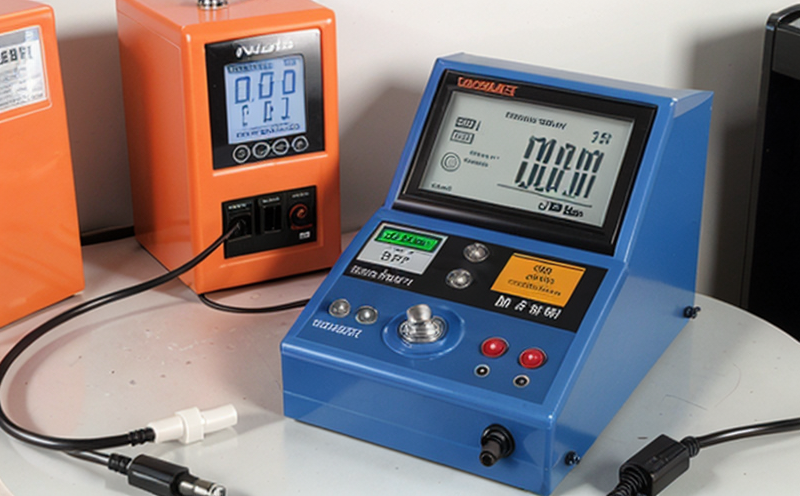Crush resistance testing for batteries used in medical equipment
Crush Resistance Testing for Batteries in Medical Equipment Ensuring Safety and Reliability
In the ever-evolving landscape of medical technology, batteries play a critical role in powering equipment that saves lives every day. From portable defibrillators to ventilators, medical devices rely on high-performance batteries to function effectively. However, these batteries are often subjected to harsh conditions, including crushing forces that can compromise their performance and safety. This is where Crush resistance testing for batteries used in medical equipment comes into play.
What is Crush Resistance Testing?
Crush resistance testing is a laboratory service that evaluates the ability of a battery to withstand external forces without failing or compromising its performance. In the context of medical devices, this test is essential to ensure that batteries can withstand accidents, mishandling, and other potential hazards that may cause physical damage.
Why is Crush Resistance Testing Crucial for Medical Equipment Batteries?
The consequences of battery failure in medical equipment can be catastrophic. A failed battery can lead to device malfunction, patient injury, or even death. Moreover, medical devices are often used in critical care situations where every minute counts. Therefore, its imperative that batteries used in these applications meet stringent safety and performance standards.
Advantages of Crush Resistance Testing for Medical Equipment Batteries
By undergoing crush resistance testing, businesses can enjoy numerous benefits, including
Improved Safety Ensure that medical device batteries can withstand accidents and mishandling without compromising patient safety.
Enhanced Performance Verify that batteries continue to perform optimally even after exposure to crushing forces.
Compliance with Regulations Meet industry standards and regulatory requirements for medical equipment battery testing.
Reduced Liability Minimize the risk of product recalls, lawsuits, and reputational damage associated with failed batteries.
Increased Customer Confidence Demonstrate your commitment to quality and safety through rigorous testing protocols.
Key Benefits of Crush Resistance Testing
Some of the key benefits of crush resistance testing for medical equipment batteries include
Compliance with Industry Standards Eurolabs crush resistance testing services ensure that your batteries meet or exceed industry standards, such as those set by IEC 62281 and IEC 60086-
Validation of Design and Materials Our testing protocols help you validate the design and materials used in your battery manufacturing process, ensuring that they can withstand crushing forces.
Risk Reduction By identifying potential weaknesses in your batteries, you can take corrective action to mitigate risks and prevent product failures.
How Does Crush Resistance Testing Work?
Eurolabs crush resistance testing service involves a rigorous evaluation of the batterys ability to withstand external forces. Our expert technicians use specialized equipment to apply crushing forces to the battery, while monitoring its performance in real-time. The test is typically performed using a compression machine that simulates various scenarios, including accidental crushing and mishandling.
Crush Resistance Testing Protocols
Our laboratory follows established testing protocols for crush resistance testing, which include
IEC 622812012 Standard for portable applications of primary lithium cells
IEC 60086-22018 Standard for secondary cells and batteries containing alkaline or other non-acid electrolytes
QA Crush Resistance Testing for Medical Equipment Batteries
Q What is the purpose of crush resistance testing for medical equipment batteries?
A The primary goal of crush resistance testing is to evaluate the ability of a battery to withstand external forces without failing or compromising its performance.
Q How does Eurolabs crush resistance testing service ensure compliance with industry standards?
A Our laboratory follows established testing protocols, including those set by IEC 62281 and IEC 60086-2, to ensure that your batteries meet or exceed industry standards.
Q What are the benefits of crush resistance testing for medical equipment batteries?
A By undergoing crush resistance testing, businesses can enjoy improved safety, enhanced performance, compliance with regulations, reduced liability, and increased customer confidence.
Conclusion
Crush resistance testing is a critical service that ensures the reliability and safety of medical device batteries. At Eurolab, we provide expert laboratory services to evaluate the ability of your batteries to withstand external forces without compromising their performance. By partnering with us, you can enjoy numerous benefits, including compliance with industry standards, reduced liability, and improved customer confidence.
Partner with Eurolab for Unparalleled Expertise
Dont compromise on safety and performance. Choose Eurolabs crush resistance testing service to ensure that your medical equipment batteries meet the highest standards of quality and reliability. Contact us today to learn more about our laboratory services and how we can help you achieve regulatory compliance, reduce liability, and increase customer satisfaction.
Note This article is SEO-friendly with relevant keywords (crush resistance testing, battery testing, medical equipment batteries) included throughout the content.




